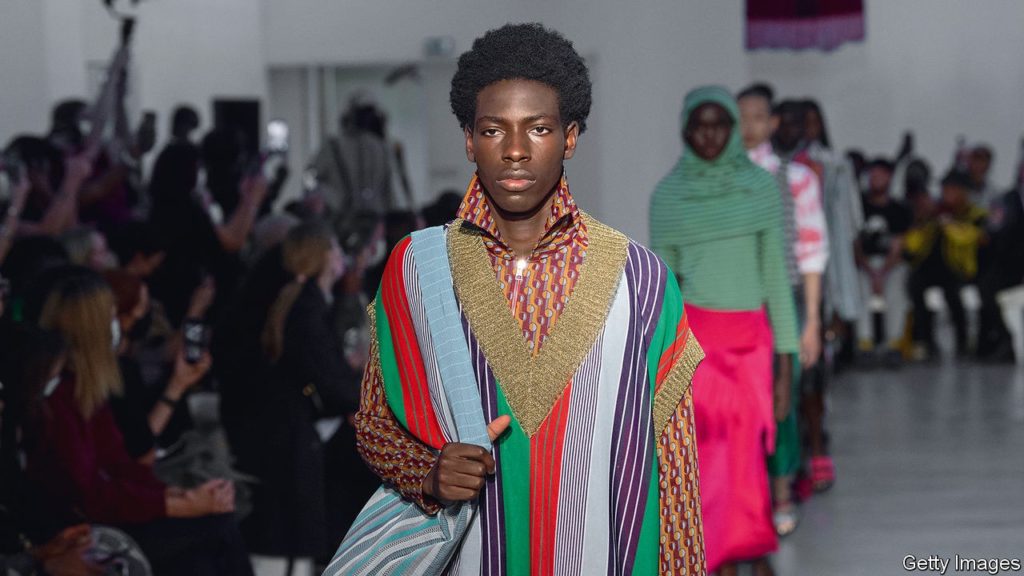IN JUNE 2022 the Victoria and Albert (V&A) museum in London will stage an exhibition on the history of African fashion, from independence through to the present day. It is an ambitious task: no exhibition could ever do justice to the fashions of an entire continent. But with 250 pieces, curators hope to show that there is far more than tassels, beading and wax prints.
The v&a show will shine a spotlight on African designers, such as Lagos Space Programme, who are increasingly being recognised in the world’s fashion capitals. African talents are vying for some of the industry’s biggest awards, such as the lvmh prize for young artists—Thebe Magugu of South Africa is a recent winner.
For his west African weaving techniques, Emmanuel Okoro won the inaugural edition of “Africa Fashion Up”, a showcase for African designers held in Paris in September. Balenciaga, a Spanish luxury fashion house, was a sponsor. And if fellow Nigerian designer Kenneth Ize’s capsule for Karl Lagerfeld is anything to go by, 2022 promises more collaborations showcasing African designers.
Many African cities have diverse, thriving fashion scenes of their own. Fashion weeks held in Dakar, Johannesburg and Lagos every autumn are hotly anticipated. Rich subcultures, from the dandy sapeurs of Kinshasa to the Afropunk scene in Johannesburg, will continue to flourish. But in America, designers will find followings by dressing African stars—styling an Afrobeats singer at the Grammy awards, say, or designing the dress that Chimamanda Ngozi Adichie wears to her latest book launch. When the sequel to “Black Panther”, a Hollywood blockbuster set in a fictional African kingdom, is released in the summer, expect a flurry of African-inspired fashion shows, as well as some grumbling about cultural appropriation.
Many African cities have diverse, thriving fashion scenes of their own
African fashion has for too long been reduced to brief “moments” or fads. But the new generation of designers has more staying power. Their fresh takes on traditional African styles are perfect for an era that celebrates authenticity. A focus on sustainability—fabrics sourced from local artisans, jewellery from recycled materials—suits the growing demand for “slow fashion” which will define the next decade.
Increasingly designers are backed by African entrepreneurs. In October 2021 Roberta Annan, a Ghanaian businesswoman, launched a €100m ($116m) fund to be based in Luxembourg that will award grants to small- and medium-sized African creative and fashion enterprises. The internet, too, gives them a global shopfront. Industrie Africa, an online catalogue of emerging designers, based in Tanzania, recently added an e-commerce platform to its site. Never has it been easier for designers to reach globetrotting millennials with money to spend and social consciences to engage.
Obstacles remain. Most designers still struggle to transcend the logistical and financial bottlenecks that hamstring African trade. Despite attempts to broaden fashion education to a wider audience, the latest styles will remain largely the domain of an educated, well-travelled elite. But there will be more feathers in the caps of this small cohort. African fashion is taking off, and some of the world’s leading fashion houses will be hanging on to its coattails.
By Georgia Banjo: Foreign affairs correspondent, The Economist





